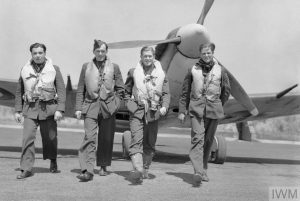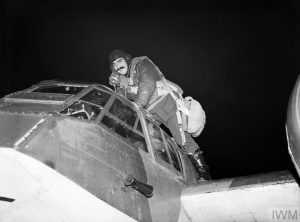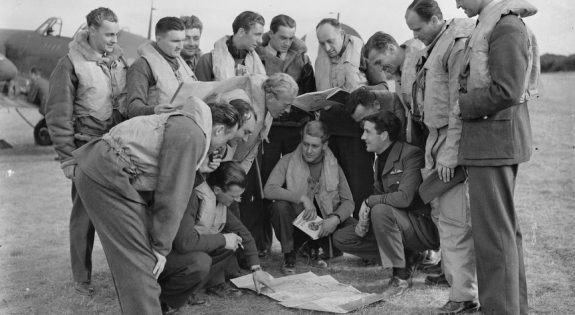News
July 10th 2020
THE BATTLE OF BRITAIN 80 YEARS ON.
The 10th of July marks 80 years since the start of the Battle of Britain. To commemorate the brave acts of those we lost, we share the stories of a few RAF pilots from the East Midlands area.
The 10th of July marks 80 years since the start of the Battle of Britain, where over 1500 British pilots, crew, and coastal command were killed in the four-month battle against the Luftwaffe. Here is the incredible story of Pilot Officer Eric Lock of 41 Squadron who now base locally out of RAF Coningsby, Lincolnshire.

Pilot Officer Eric Lock (left)
While on patrol over the Dover area in September 1940, Pilot Officer Eric Lock (pictured here on the left) of 41 Squadron RAF took on three Heinkel He 111s of the Luftwaffe and gunned one down into the sea. Officer Eric Lock then went on to attack another German aircraft immediately afterwards, using cool determination and great skill to destroy it in a heated exchange.
He was awarded a Bar to the Distinguished Flying Cross (DFC) for this daring act of flying in October 1940. The details of this award also stated that he had ‘displayed great courage in the face of heavy odds’ and had destroyed ‘fifteen enemy aircraft within a period of nineteen days.’
To commemorate the lives lost in the Battle Of Britain we share the story of Acting Flight Lieutenant Jack Adams, who based locally out of RAF Digby with 29 Squadron RAF.

A pilot from 29 Squadron
Acting Flight Lieutenant Jack Adams of 29 Squadron RAF was on a night patrol on 20 August 1940 when he saw a German aircraft around a mile in front of him. He had spotted a light in the rear gunner position, making it possible for him to follow it, in his Blenheim bomber, for 50 minutes. During this time, he lost communication with his base, RAF Digby, but carried on in spite of this, determined to destroy the German aircraft. Finally, he made contact with it off the south coast, near the Isle of Wight.
Adams went in for the attack, skilfully shooting at the aircraft over the sea and destroying it. He then returned to his base. When he landed, it was discovered that both of his petrol gauges were at nil – he’d been running on empty. On 24 September 1940, it was announced that Adams had been awarded the Distinguished Flying Cross for his bravery. The official report for this also stated that Adams had been ‘continuously employed on night flying duties’ since the start of the war and had always shown ‘conspicuous devotion to duty’. Adams had joined the RAF in 1936 and had a successful career in the service, retiring in 1958 as a Wing Commander.
(Credit: the Imperial War Museum)

